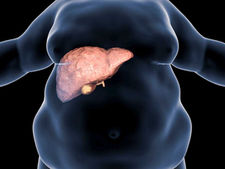
Hypertension
What is Hypertension?
Hypertension, also known as high blood pressure, is the high pressure exerted by the blood in the blood vessels on the vessel wall. Blood pressure, in short, the blood pressure applied to the vessel walls, is determined by the amount of blood pumped by the person's heart and also by the amount of resistance against the blood flow in the arteries or veins.
Systolic, commonly known as systolic blood pressure, is the pressure when the heart contracts, and diastolic, known as diastolic blood pressure, is the pressure when the heart relaxes. Everyone over the age of 18 should have a normal resting systolic blood pressure of 120mmHg and diastolic blood pressure of 80mmHg. If the systolic blood pressure is higher than 140mmHg and the diastolic blood pressure is higher than 90mmHg in three separate measurements, hypertension can be diagnosed. People can live their lives without knowing that they have hypertension because they do not show any symptoms for years.
What are the symptoms of hypertension?
Hypertension may not show symptoms in some patients, but in the process it can cause serious damage to our organs such as the heart, kidneys and brain. Symptoms such as shortness of breath, heart palpitations, chest pain, dizziness and headache, weakness, fatigue, frequent urination, nosebleeds, vision problems, ringing in the ears, and body edema are the most common.
What are the causes of hypertension?
There is no specific cause in the majority of hypertension patients, approximately 95%, but reasons such as environmental and genetic factors, high salt consumption, sedentary life, and overweight are also common conditions that cause hypertension. In addition, conditions such as kidney diseases, birth control pills, thyroid diseases, heart diseases, sleep apnea, smoking and alcohol consumption, and stress can cause hypertension, although they are not common. The risk of hypertension increases after a certain age. Hypertension is usually seen in adults, but children are also at risk. Although the cause of its occurrence in children is usually kidney and heart diseases, it can also be caused by reasons such as malnutrition and lack of exercise.
What are the treatments for hypertension?
Hypertension can also be the cause of other diseases and may pose some risks for us. These diseases and risks may include stroke, brain hemorrhage, clot, vascular occlusion, kidney failure, heart failure, heart attack, and aneurysm expansion and rupture. Therefore, hypertension is a disease that must be diagnosed early, prevented from progressing, and treated with the right methods. Medications have an important place in the treatment of hypertension, and apart from this, adherence to diet and exercise continuity, and reducing smoking and alcohol consumption, which are under the patient's control, are also very important in terms of the effectiveness and efficiency of the treatments.
Our patients who obtain incorrect results by measuring their blood pressure at home and try to lower their blood pressure with hearsay information should get the most accurate information by consulting our specialist. Our internal medicine specialist will determine the most appropriate medication for your treatment, draw up a suitable plan for diet and exercise treatments, and if necessary, cooperate with the dietician and help you by creating a more efficient diet and exercise program.
FOR INFORMATION AND APPOINTMENT, YOU CAN LEAVE YOUR NUMBER OR ASK OUR EXPERTS
YOU CAN LEAVE YOUR NUMBER FOR INFORMATION AND APPOINTMENT AND ASK QUESTIONS TO OUR EXPERTS



-04.png)
-06.png)
-05.png)
-08.png)
-07.png)





















